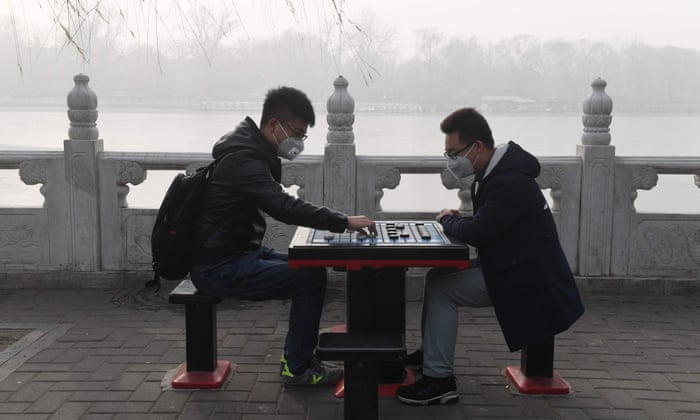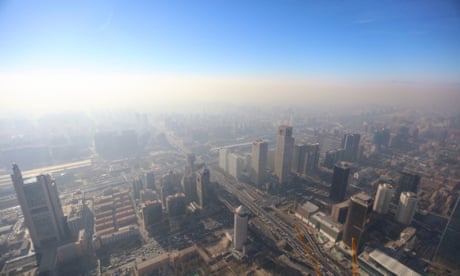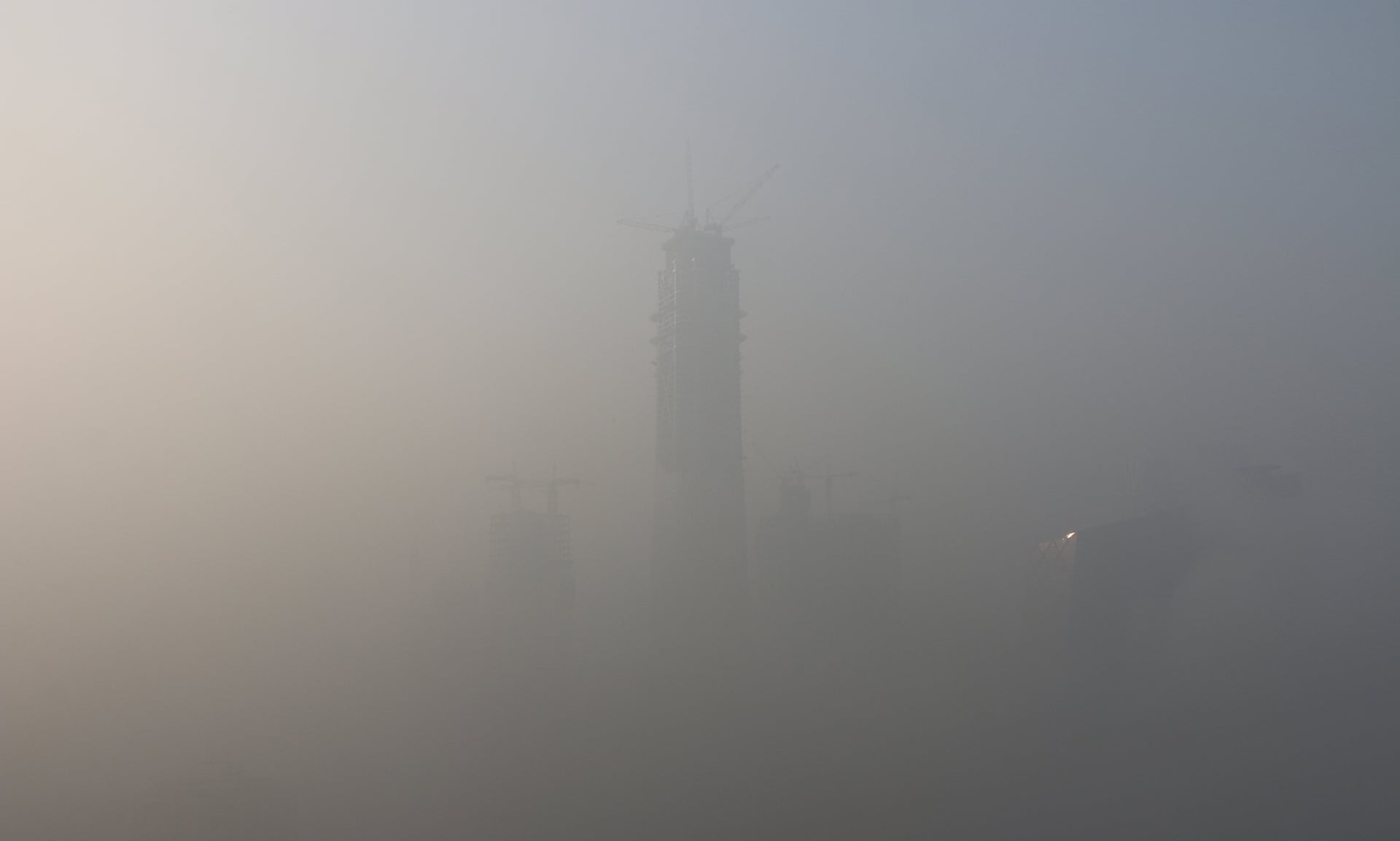By Catherine Hardy
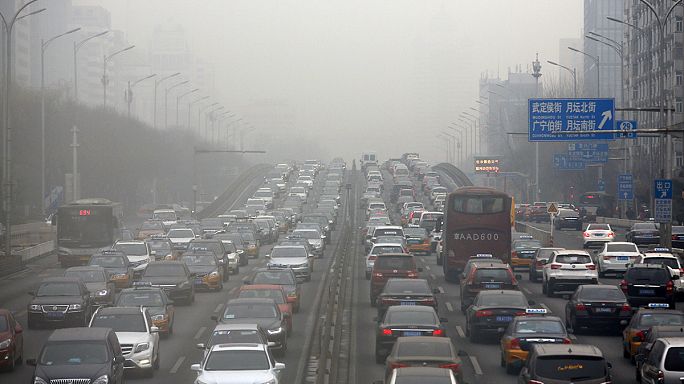
The Beijing city government has told officials not to set off fireworks or firecrackers to welcome the Lunar New Year.
The Chinese New Year holiday begins on New Year’s Eve on Friday.
It is normally marked by riotous pyrotechnic displays.
They are thought to bring good luck and ward off evil spirits.

What has the government said?
The government has tried to limit the use of fireworks in recent years.
The government said officials must “take the lead by not setting off fireworks or firecrackers” in a statement late on Thursday.
“Pro-actively guide family members and friends not to let off or to limit the letting off of fireworks and firecrackers, improve air quality together and get into the action of ensuring blue skies for the capital,” the statement ended.
 Other measures
Other measures
The government has already limited firework sales in Beijing.
Only 511 firework stalls have been approved this year, compared to 719 last year.
None of them are in central Beijing, according to reports.

New Year in China
This year, the Lunar New Year marks the start of the year of the rooster.
It is the largest annual mass migration on Earth.

What has the government said?
The government has tried to limit the use of fireworks in recent years.
The government said officials must “take the lead by not setting off fireworks or firecrackers” in a statement late on Thursday.
“Pro-actively guide family members and friends not to let off or to limit the letting off of fireworks and firecrackers, improve air quality together and get into the action of ensuring blue skies for the capital,” the statement ended.
 Other measures
Other measuresThe government has already limited firework sales in Beijing.
Only 511 firework stalls have been approved this year, compared to 719 last year.
None of them are in central Beijing, according to reports.

New Year in China
This year, the Lunar New Year marks the start of the year of the rooster.
It is the largest annual mass migration on Earth.
Hundreds of mlllions of workers pack trains, buses, aircraft and boats to spend the festival with their families.
For many Chinese people, it is their only holiday of the year.
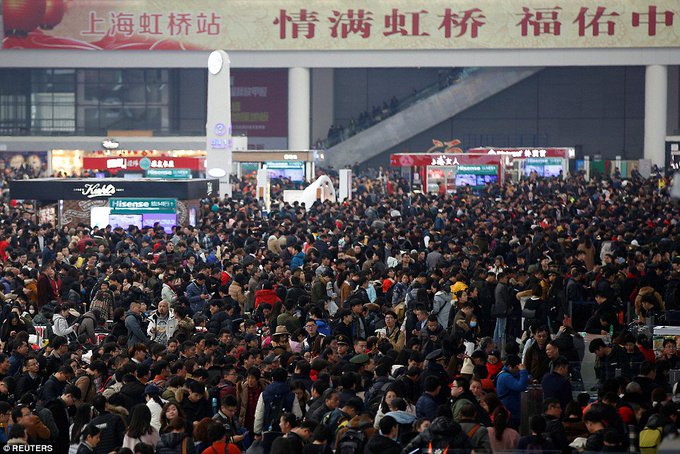
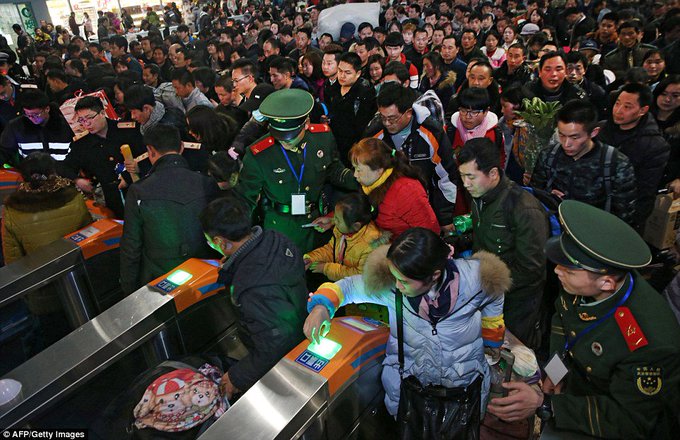
Are the restrictions only in Beijing?
No.
Other parts of the country are also cracking down.
Central Henan province has banned their use in all cities and towns.
Hebei’s Baoding city is threatening to detain anyone setting off fireworks outside the four days of celebrations.

Why is pollution a problem in China?
Efforts to clean up the skies in China’s northern industrial heartland, which includes Beijing, are being thwarted by coal-burning industry and indoor heating.
Both increase during the winter months, especially in the bitterly-cold north.

For many Chinese people, it is their only holiday of the year.


Are the restrictions only in Beijing?
No.
Other parts of the country are also cracking down.
Central Henan province has banned their use in all cities and towns.
Hebei’s Baoding city is threatening to detain anyone setting off fireworks outside the four days of celebrations.

Why is pollution a problem in China?
Efforts to clean up the skies in China’s northern industrial heartland, which includes Beijing, are being thwarted by coal-burning industry and indoor heating.
Both increase during the winter months, especially in the bitterly-cold north.



